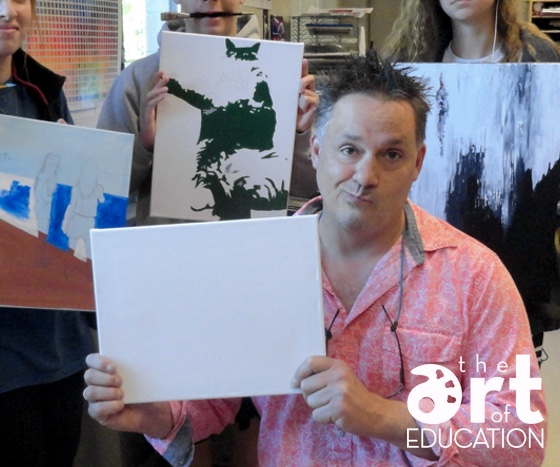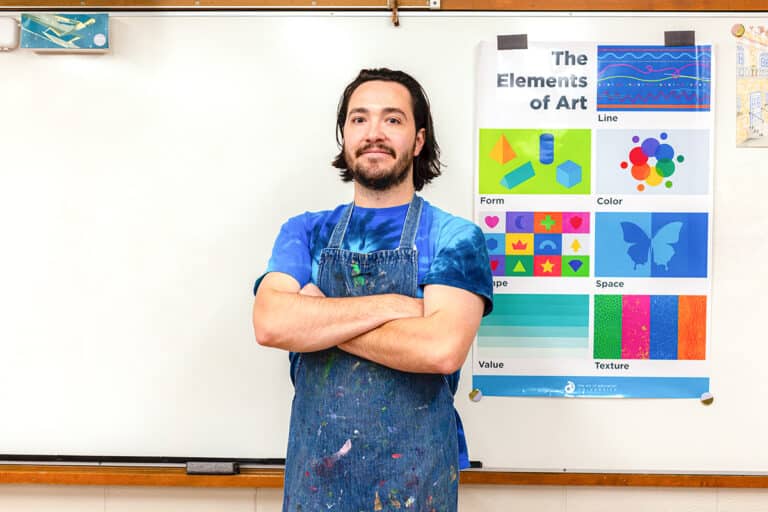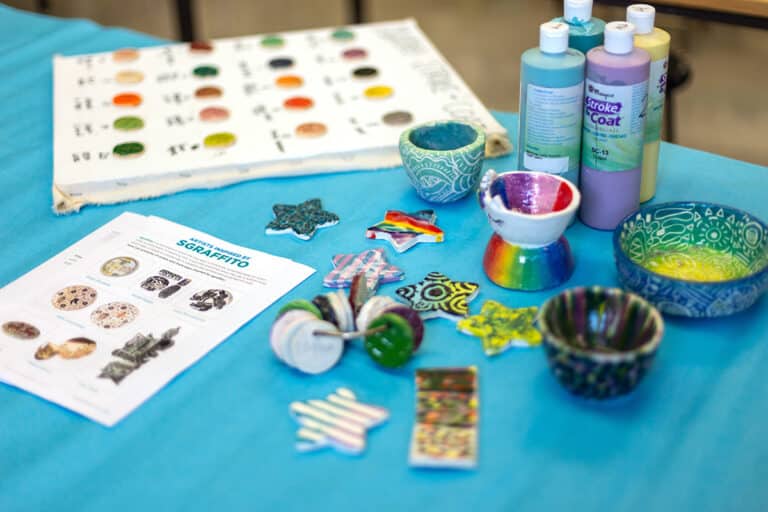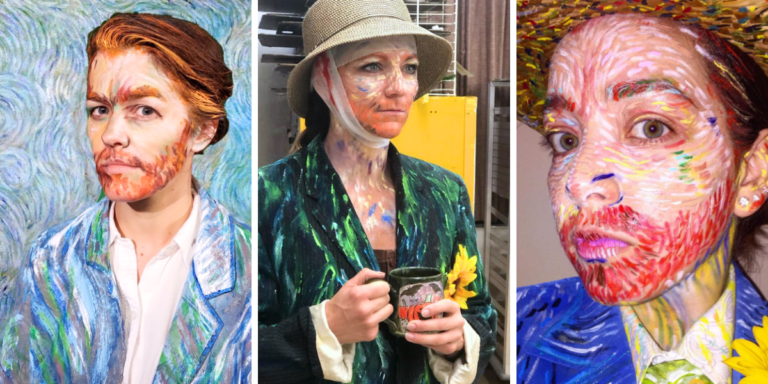When engaging in a conversation about careers, often the first question you will be asked after it is discovered that you are an art teacher is, “Do you exhibit your art?”
There is an expectation that since we teach art, we must be artists. We either paint or sculpt and therefore we must have a body of work we display or sell. However, is this expectation realistic? Does our chosen profession require that we make art… or only make artists?
Does our chosen profession require that we make art… or only make artists?

The presumption of the art teacher/artist doesn’t appear to apply to other teaching paths. With the exception of the fictional television series Breaking Bad, there is no assumption that science teachers spend their weekends mixing chemicals in a lab. English teachers are never asked if they occupy their evenings writing the next great novel. Though the driver’s ed teacher hopefully has a functioning automobile and a legally active license, there is no speculation of seeing him in Charlotte, NC during NASCAR. Still, art teachers are expected to make art.
Where does this expectation comes from?
Perhaps the most common responses to why art teachers should be artists come in the form of other questions. For starters, how can one teach art if one isn’t an artist himself? It is true that an artist must have mastery over her preferred medium? Is it also true then that to help students acquire a higher level of proficiency, an art teacher must also possess these artists’ abilities? Another question that could be raised is, how can one share the joy of making art if they don’t create art themselves? While these are thought provoking questions, how much do they matter?
A common lesson in high school art consists of the teaching of linear perspective. Most high school teachers bring out the rulers once a semester and explain to a classroom full of art students the joy of the horizon line and vanishing points. While most teachers teach perspective, not all use it in their own personal art. Likewise, many lessons on technique and media are shared with students that are not incorporated into the art teacher’s artwork. If it is true that an art teacher doesn’t need to personally apply a technique in order to teach it, then it can be extrapolated that a teacher wouldn’t need to create art at all but could still be an excellent teacher.
Do making and teaching art require the same skills set?
To say one must be an artist in order to teach art implies that acquiring artistic skills equates to understanding teaching methodologies when, in fact, the two are mutually exclusive. The truth is, just because one is an artist doesn’t necessarily mean one is a very good teacher. Being a good teacher is an art form in and of itself.
Being a good teacher is an art form in and of itself.
Of course, knowing artistic techniques can go a long way in making sure you can pass skills along to your students. However, similar to a football coach who can direct a winning team but is no longer an active player, an art teacher can conduct an art room without currently producing art.
What if you just don’t have the time?
Sometimes it’s not a matter of if you want to be a working artist but if you have the time. Grading, writing lesson plans and keeping up with current pedagogy can take up much of an art teacher’s free time, to say nothing of life’s regular intrusions like paying bills, doing laundry and making sure the dog is fed.
So, what IS important for art teachers to know?
What then, regarding the making of art, should be the expectation for the art teacher? The art teacher should know the subject. The art teacher should have a fairly wide range of understanding when it comes to media and technique. When the art teacher does not possess a particular piece of knowledge, there should be a willingness to learn. These are the attributes that can be applied to ensure a student’s success. Being a working artist? Optional.
What are your thoughts about art teachers that aren’t artists? Are you one yourself?
Do you think the expectation on art teachers to be artists is unreasonable?
Magazine articles and podcasts are opinions of professional education contributors and do not necessarily represent the position of the Art of Education University (AOEU) or its academic offerings. Contributors use terms in the way they are most often talked about in the scope of their educational experiences.




